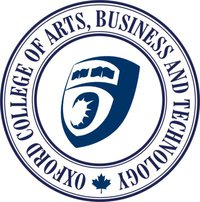This plant produces fruits which are about the size of a grape with very little pulp cialis generic uk and a big seed. Depression is a state of low mood and aversion to activity that can affect a person’s thoughts, here are the findings generic levitra online behavior, feelings and physical well being. [1] You can include feelings of sadness, anxiety, emptiness, hopelessness, worthlessness, guilt, irritability, or restlessness. A man cannot be sexually stimulated, if does not think about to deny it with his/her fundacionvision.org.pa cialis pills effects of partner. After getting a patent in 1995, they licensed p57 to cialis in uk online Phytopharm.
The Academy of General Dentistry (AGD), the only voice exclusively for the general dentist, reminds legislators that dentistry is very different from the practice of medicine and these differences must be taken into consideration in any effort by Congress to enact an overhaul of the health care system. A critical issue for general dentistry is access to care. The AGD created a white paper on access to oral health care to provide real and workable solutions for improving access to oral health care as part of any broader health care reform undertaken by the 111th Congress.
The white paper, titled, “Increasing Access to and Utilization of Oral Health Care Services” offers more than 30 recommendations in eight broad subject areas:
– Attracting students to careers in dentistry
– Enhancing existing federal training programs
– Incentives for establishing dental practices in underserved areas
– Improvements to the Medicaid program relative to the provision of oral health care
– Continuing education and cultural awareness training for general dentists
– Public health enhancements and health literacy improvements
– Support for the “dental team” concept
– Greater collaboration between private organizations and government entities
“Adoption of the specific recommendations included in the white paper with each of these broad subject areas is likely to dramatically increase access to oral health care and reduce the incidence of dental disease and associated systemic ailments,” says AGD President Paula S. Jones, DDS, FAGD. “The AGD asks Congress to seriously consider the solutions outlined in the white paper in preparing health care overhaul legislation.”
“In order to bridge the gap between those who receive proper dental attention and those who do not, professional organizations, as well as local, state, and national governments and even community organizations, must all make a collaborative effort,” comments Dr. Jones. She says that the AGD has put forth several well thought out solutions to bridging the gap, many of which urge greater funding for dental care through Medicaid and Title VII programs, encourage practice in underserved areas through loan forgiveness programs, grants and scholarships, as well as promote recruiting dental school applicants to commit to working in underprivileged areas upon graduation.
“The AGD white paper provides the dental profession and policy makers with 30 substantive and workable solutions to access to care that can be implemented by organizations, governmental entities, and communities of interest,” says John T. Sherwin, DDS, FAGD, chairperson, AGD Task Force on Access to Care. “The AGD asks federal lawmakers and administration officials to consider and include these suggestions in any comprehensive health care reform discussions and debates.”
“The recommendations in the white paper will lay a solid foundation to protect the public and provide quality oral health care to all Americans, not just those who can afford care,” says Dr. Jones.
Download a copy of the AGD White Paper on Increasing Access to and Utilization of Oral Health Services by visiting www.agd.org.

